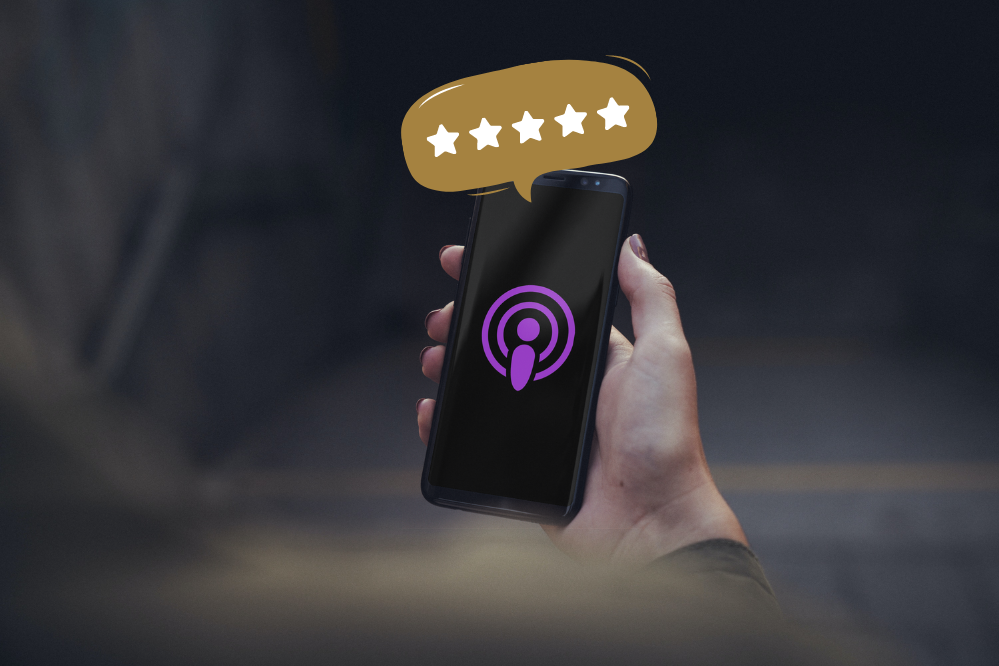Episode 58: How to Lead A Meeting Without A Pitch Deck | Story Snacks Series
Subscribe to Billion Dollar Backstory on Apple Podcasts, Google Podcasts, Spotify, or wherever you listen to podcasts.
You can ditch PowerPoint and still own the room.
In fact, running a killer meeting is usually easier than the gurus and motivational speakers might tell you.
Whether you’re facing an allocator who insists on seeing the presentation beforehand or navigating an awkward silence before kick-off, Stacey’s got you covered.
In this episode, Stacy covers:
The right time to send your meeting notes or deck for optimum preparedness
Preparing on a timeline that sets you up for success
Starting with the allocator’s story to get them talking
Steering discussion to address key concerns
Tune in to flip the script on traditional meetings to lead with stories and listen thoroughly. Take your meetings to the next level with this episode.
This is Story Snacks! A bite-sized, jam-packed series for fund managers who are ready to master strategic storytelling in less than 20 minutes per week!
TRANSCRIPT
Below is an AI-generated transcript and therefore it may contain errors.
[00:00:00] Craving more knowledge, but don't always have time to sit down for a five course meal? Take a quick snack break with StorySnacks. Bite sized content to feed your funnel. Each short episode features Stacey digging into one question. This series has her talking stories, sales, and so much more. Oh yeah, it's time for StorySnacks!
[00:00:26] So if I'm ditching the pitch, I'm not using the presentation, then how does the meeting go? And what happens when the allocator insists on getting the deck before the meeting? Well, yeah, these are great questions. So the allocator might insist on getting the presentation before the meeting. And then of course, if you're ditching the pitch, you're not going to use the presentation.
[00:00:46] So what are you going to do? Okay. I actually think it's a good practice to send the allocator the presentation before the meeting for a couple reasons that I'm going to tell you. The [00:01:00] first most obvious one is they have a chance to review the information and, you know, kind of get some basics down, maybe come up with some questions, et cetera.
[00:01:12] I think the tweak I would suggest is that instead of sending it like the day before you're meeting with them, send it the week before. Why? Because people are busy! And like, these people have other things on their radar besides your meeting. So don't give them five seconds to review it, give them a week.
[00:01:31] To review it, and also because if you use our meeting method, we suggest that you call the prospect a few days before your meeting, like three days prior and actually ask them, like, what topics do you want to be sure we cover in the meeting so that we can prepare? And then you're going to put all those things in a meeting prep document.
[00:01:57] So if you haven't got that whole playbook [00:02:00] meeting prep template. thing. I believe it's on our website. You can go grab that. But all of the sending the presentation ahead of time, like a week ahead of time prepares you to be able to call that person. A few days before the meeting, find out what they want to talk about and then create your meeting prep document, which you are then going to share with everybody who's attending the meeting.
[00:02:24] Look, I realize, like, I am crazy detailed. Okay. I am crazy detailed for a good reason. Because what makes a good meeting is everything you do before you ever step into that room. It's like being on a stage. It's great because of how you prepare. So, do all of those things. Now you've done the preparation.
[00:02:50] You've got the meeting prep document. You've prepped everyone. Here are the topics and what are we going to say and da da da. And then you know from previous topics, from previous stacks, that [00:03:00] when you go into that meeting, it's your show. You have to have an active role in the meeting as the salesperson, so now you're not going to use the presentation.
[00:03:09] So now what do you do? Okay, the ideal scenario is that you want to start if this is a 1st meeting, you want to start with stories and you want the allocator to go 1st. So you are going to. Whatever, vibe up the joint, and then when you sit down and it's always awkward, it's just always awkward when a meeting is about to start, like it's just comically awkward, okay?
[00:03:37] You are gonna own it, and you're just gonna say. You know, thank you so much for taking the time. It would be great to hear a little bit about you and your story and kind of who you serve, what your client base is. And then you can ask them to kind of tie it to the asset class, like kind of what are your thoughts on the space right now, et cetera.
[00:03:57] And you let them go first and you let them talk. [00:04:00] There is. An often forgotten rule of communication, which is the 70 30 rule. Prospects will think a meeting is great if they talk 70 percent of the time. And guess what we're doing here? We're starting now. They get the floor. They get the mic. Why? Because, again, the 70 30 rule, but also you are going to get clues.
[00:04:25] From what they say that you can then work into your conversation and your story so they go first and then you say, that was great. Or maybe you have some questions you want to ask. And then you're going to say, would it be helpful if founder fund manager here told you a little bit about. Our firm and how we came to be, et cetera, and their backstories are, and the practice could say, yeah, that'd be awesome.
[00:04:52] And so then that now it's your turn and fund manager goes, and who knows, maybe there's like some common shared connections that [00:05:00] you can bring up based on what you've heard from the allocator. And basically after that, typically the meeting sort of takes care of itself. I do want to go back to one thing though.
[00:05:12] If you've done the meeting prep and you've called them. And they've given you topics that you want that they wanted to cover. I will tell you this is like when I was in the meeting, I would have the physical piece of paper so that they can see that I have a document for this meeting. I am very organized about this document and I will check off the questions that they had and I will make sure that everybody sees.
[00:05:42] That I am like, okay, so we've covered question one, we've covered question two, allocator, there was another topic, I'm just watching the time, I want to be sure we get to this one. So should we touch that now? So do you see why that makes them feel respected and seen and like [00:06:00] it's their meeting and I'm making sure that they get their space and their time and their questions answered.
[00:06:06] It's really powerful. I know it seems crazy. Call me crazy then, but it works. I hope that helps. Are you an investment boutique looking to grow your business and need a little help? If you feel like you're fighting for the spotlight and, well, still stuck in the shadows of the bigs, join us in the Boutique Investment Collective, Havener's new membership community dedicated to the specialist in the investment industry.
[00:06:33] In the collective, we'll guide you through the billion dollar blueprint we've used to help boutiques add over $30 billion. In a UM, you'll refine your story, focus on your ideal target market, and practice your pitch. You'll rethink your marketing materials, rewrite your emails, and refresh your differentiators.
[00:06:51] We'll even help you step up your LinkedIn game and give your profile a makeover. You want to grow your biz, we've got your back. Learn more about The Collective, the [00:07:00] curriculum, and the amazing coaches who will help you on your journey. Visit HavenerCapital. com slash Collective. High five! Hope to see you in a coaching session soon.
[00:07:18] This podcast is for informational purposes only and should not be relied upon as a basis for investment decisions. The information is not an offer, solicitation, or recommendation of any of the funds, services, or products, or to adopt any investment strategy. Investment values may fluctuate and past performance is not a guide to future performance.
[00:07:37] All opinions expressed by guests on the show are solely their own opinion and do not necessarily reflect those at their firm. Manager's appearance on the show does not constitute an endorsement by Stacey Havener or Havener Capital Partners.





